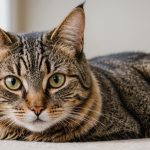Understanding Feline Immunodeficiency Virus (FIV)
Feline Immunodeficiency Virus, or FIV in cats, is a critical aspect of cat health that requires attention. This virus is primarily transmitted through bite wounds, often during fights among cats, and less frequently from mother to kitten during birth. Cats with FIV can live for many years without symptoms, but eventual signs might include a weakened immune system, making them more susceptible to infections and illnesses.
Symptoms can vary and often mimic other diseases, confusing diagnosis. Common symptoms include poor coat condition, persistent fever, loss of appetite, and inflammation of the gums and mouth. A diagnosis of FIV typically involves blood tests that detect the presence of antibodies created in response to the virus.
Cela peut vous intéresser : Positive Strategies for Keeping Cats Off Furniture: Effective Techniques Without Negative Reinforcement
There are several misconceptions about FIV. Many believe it is highly contagious and affects cats like HIV does humans, which is inaccurate. FIV is species-specific and does not affect humans. Understanding these nuances is vital when considering a cat for adoption. Cats with FIV can lead long, fulfilling lives with proper care. Educating potential adopters about FIV dispels myths and ensures informed decisions, benefiting both the cat’s health and its future family.
Health Care for FIV-Positive Cats
Feline Immunodeficiency Virus (FIV) affects a cat’s immune system, making regular veterinary check-ups essential. These visits help monitor the cat’s overall health, allowing for timely interventions. During each visit, veterinarians assess whether cat medications are necessary to manage symptoms or prevent secondary infections.
A lire en complément : Top Strategies for Keeping Your Cat Happy and Engaged During a Lengthy Vet Visit
FIV care also encompasses vaccination and preventive care. Although there’s no specific vaccine for FIV, protecting against common feline diseases is crucial, as an FIV-positive cat is more susceptible. Following the vet’s instructions on core vaccinations helps mitigate these risks.
Additionally, understanding and managing chronic health issues associated with FIV is vital. These might include recurrent infections, dental disease, or inflammation. Cat medications play a pivotal role in managing these conditions, ensuring the cat maintains a good quality of life.
Regular household hygiene and proper nutrition also support FIV care. Providing a balanced diet can strengthen an FIV-positive cat’s immune system, alongside veterinary interventions. Moreover, keeping the environment clean helps reduce exposure to pathogens.
In summary, the cornerstone of caring for FIV-positive cats involves consistent veterinary check-ups, preventive measures, and management of chronic conditions to safeguard their well-being.
Creating a Safe Home Environment
Every pet owner cherishes the idea of having a safe and secure home for their furry friends. Protecting your pets involves strategic modifications around your living space. Home safety for pets begins with eliminating hazards that could cause injury. Keep harmful substances, such as cleaning products and small choking hazards, securely stored away. Cat-proofing involves more than just removing breakables; consider using cat-safe gates or barriers in high-risk areas.
Designing cat-friendly spaces is pivotal for their comfort and security. Shelving units can double as climbing enclosures, providing cats with observation points and safe retreats. Soft bedding should be placed in low-traffic areas to encourage relaxation and give cats a sense of security.
A clean living space is equally vital. Regularly vacuum and dust to minimize allergens that could irritate your pet. Maintain a routine cleaning schedule to ensure your pet’s environment remains hygienic.
Enrichment and play play substantial roles in a safe environment. Toys, scratching posts, and interactive play sessions keep your cat’s mind and body active, reducing the risk of stress and boredom. By thoughtfully arranging and maintaining your home, you create a haven where your pets can thrive.
Introducing FIV-Positive Cats to Other Pets
Introducing cats to pets, especially those with FIV-positive status, requires careful attention and planning. The integration process starts by creating a safe and controlled environment. Begin with a separate space for the new cat, allowing it to acclimate to its surroundings without direct interaction with other animals. Scent swapping can be beneficial; exchange bedding or toys between the pets to help them get used to each other’s smells.
Socialization should be gradual. Start by allowing the cats to see each other through a gate or door. This step minimizes stress and fear, encouraging a positive association. Monitoring interactions closely ensures that no negative behaviours develop. Look for signs of acceptance, such as relaxed posture and soft blinks, which indicate successful socialization.
Understanding social dynamics is key. If a pet shows stress, such as hiding or aggression, it may need more time. It’s crucial to manage these situations by providing a retreat space and using calming aids if necessary. An effective adjustment period fosters harmony, showing that introducing cats to pets thoughtfully can lead to a peaceful pet integration.
With patience and observation, FIV-positive cats can peacefully cohabit with other household animals.
Emotional Support and Bonding
Building a strong bond with your FIV-positive cat requires patience and understanding. Providing emotional support for cats through consistent care fosters trust. Cats thrive on security; offer a safe environment to ease any anxiety they may experience. Emotional well-being plays a crucial role in their overall health.
Engage in regular bonding activities to strengthen your relationship. Spending quality time together can include simple activities like playing, grooming, or just relaxing nearby. This helps reinforce a sense of connection and companionship. A cat’s purring during such moments not only indicates enjoyment but also deepens the bond further.
Pet care goes beyond routine physical needs. Incorporating mental stimulation into your cat’s life is essential for emotional health. Puzzle toys, interactive games, and even teaching tricks not only challenge their mind but can also be great bonding moments. Observing your cat respond and adapt to these activities provides insight into their personality and fosters deeper affection.
Understanding your cat’s body language and behaviour is vital in nurturing the relationship. It informs you when they need comfort or space. Building a strong emotional bond requires recognizing their individual needs and responding appropriately, which enhances both their life and yours.
Resources for FIV Positive Cats
For those caring for FIV positive cats, a wealth of resources is available to provide guidance and support. Finding local and online support groups is an excellent starting point. These groups offer a community of individuals who share experiences and tips on managing FIV effectively. Many platforms feature forums and discussion boards where you can ask questions and gain insights from others in similar situations.
Accessing Educational Materials
Educational materials are crucial for understanding and managing FIV. Several reputable organizations provide comprehensive resources that cover topics from symptoms to long-term care strategies. These materials are designed to equip caregivers with up-to-date information, making it easier to provide the necessary care for an FIV-positive cat. Look for PDFs, videos, and podcasts that detail the disease’s progression and effective management practices.
Community Resources for Adoption
Adopting an FIV-positive cat is a rewarding experience, but it requires access to the right resources. Many shelters and online platforms offer updated lists of FIV-friendly adoption centers. These community resources often provide training sessions that prepare new owners for the unique needs of FIV-positive cats. Monthly newsletters and websites also provide practical tips and support, ensuring a smooth transition into a welcoming home environment.
The Rewards of Adopting an FIV-Positive Cat
Many potential pet owners wonder about the benefits of adoption when considering FIV-positive cats, often thinking it might present challenges. However, the unique companionship offered by these felines might pleasantly surprise you. Past adopters frequently share personal stories filled with love and connection, attesting to the deep bonds formed with their FIV-positive pets.
Imagine coming home to a warm welcome from a furry friend who not only craves affection but reciprocates it with unparalleled loyalty. FIV cats often flourish in homes where love and care are prominent, providing companionship that transcends typical pet-owner relationships. Their resilience often showcases their determination, offering lessons in both endurance and joy.
Beyond personal benefits, there are philanthropic rewards. By supporting FIV-positive cat adoption initiatives, you play a vital role in reducing the stigma surrounding these friendly felines. Adopting an FIV cat not only enriches your life but also contributes significantly to broader efforts advocating for change.
Here are three empathy-driven reasons to consider FIV-positive cat adoption:
- Experience unconditional loyalty and companionship.
- Learn about resilience and strength.
- Support life-changing adoption initiatives.
For those seeking true companionship, FIV cats offer a truly gratifying experience.











